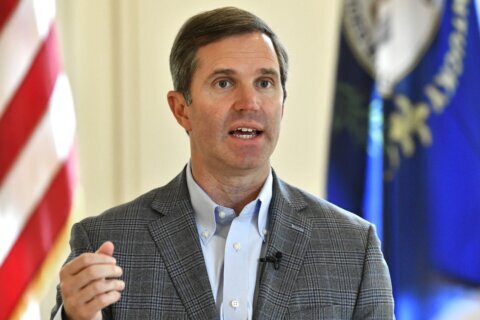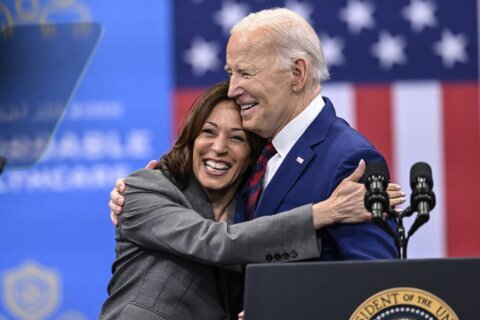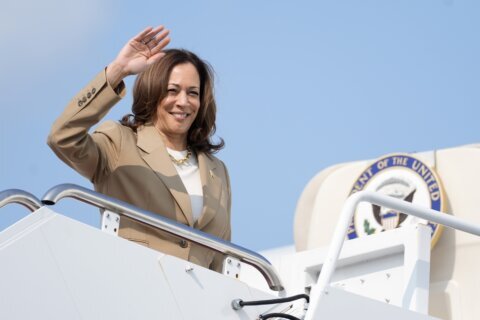WASHINGTON (AP) — Donald Trump’s invitation to address the National Association of Black Journalists has sparked an intense debate within the organization and a flurry of arguments online.
Journalism organizations for people of color traditionally invite presidential candidates to address their summer gatherings during election years. But Trump’s acceptance of NABJ’s invitation has led at least one high-profile group member to step down as a convention co-chair and others to argue their convention may become a platform for Trump to make false claims or be seen as winning NABJ’s endorsement.
Trump will be interviewed at 12 p.m. CDT Wednesday in Chicago by three reporters: Kadia Goba of Semafor, Rachel Scott of ABC News and Harris Faulkner of Fox News. Vice President Kamala Harris, the likely Democratic nominee and first Black woman to hold her office, is not currently scheduled to address the convention. A person familiar with her schedule, speaking on condition of anonymity, said the Harris campaign was unable to find a time to appear at NABJ in person and claimed the organization turned down an offer for her to appear virtually.
The debate over NABJ’s invite reflects how many journalists are still grappling with how to approach Trump nearly a decade after his first presidential run. Some group members argued journalists should allow newsmakers to be heard, while others pointed to Trump’s demeaning of prominent Black journalists while president and his frequent attacks on the free press, including labeling reporters “the enemy of the people.”
“I understand that the job should put us in tough situations if we’re doing it in a meaningful way,” wrote Tyler J. Davis, an NABJ member and freelance journalist, in The TRiiBE, a local Chicago Black news outlet.
“But this isn’t a story assignment or a news conference or a newsroom. NABJ is a place of learning, networking and feeling supported. It’s a space for Black folks to feel safe and celebrated; for Black media, specifically, to feel safe and celebrated,” Davis wrote.
Ken Lemon, president of NABJ, insisted that the invitation was “absolutely not an endorsement.”
“We invited both of them, we got a yes from one of them,” Lemon said. “We’d love to get a yes from Kamala as well, but in this case this is an important hour.”
Lemon added that the event would be a “great opportunity for us to vet the candidate right here on our ground” and added that the association had worked with both campaigns for “probably for more than a month” and each had given “the inclination that both were interested in being a part of what we’re doing.”
Karen Attiah, a global opinions columnist for The Washington Post, stepped down as the co-chair of the 2024 convention in the wake of the announcement of Trump’s appearance.
“To the journalists interviewing Trump, I wish them the best of luck,” Attiah wrote on social media. “While my decision was influenced by a variety of factors, I was not involved or consulted with in any way with the decision to platform Trump in such a format,” she continued.
Some industry leaders pushed back on the claim that Black journalists should not take opportunities to interview Trump, noting that any opportunity to hold powerful figures to account should not be wasted and that NABJ as a forum is especially suited to that mission.
“To suggest they not interview a Presidential candidate on issues relevant to the organization’s constituency is outrageous,” Rana Cash, the executive editor of the Charlotte Observer and an NABJ member, wrote on X.
___
Associated Press writer Seung Min Kim in Washington contributed to this report.
Copyright © 2024 The Associated Press. All rights reserved. This material may not be published, broadcast, written or redistributed.







